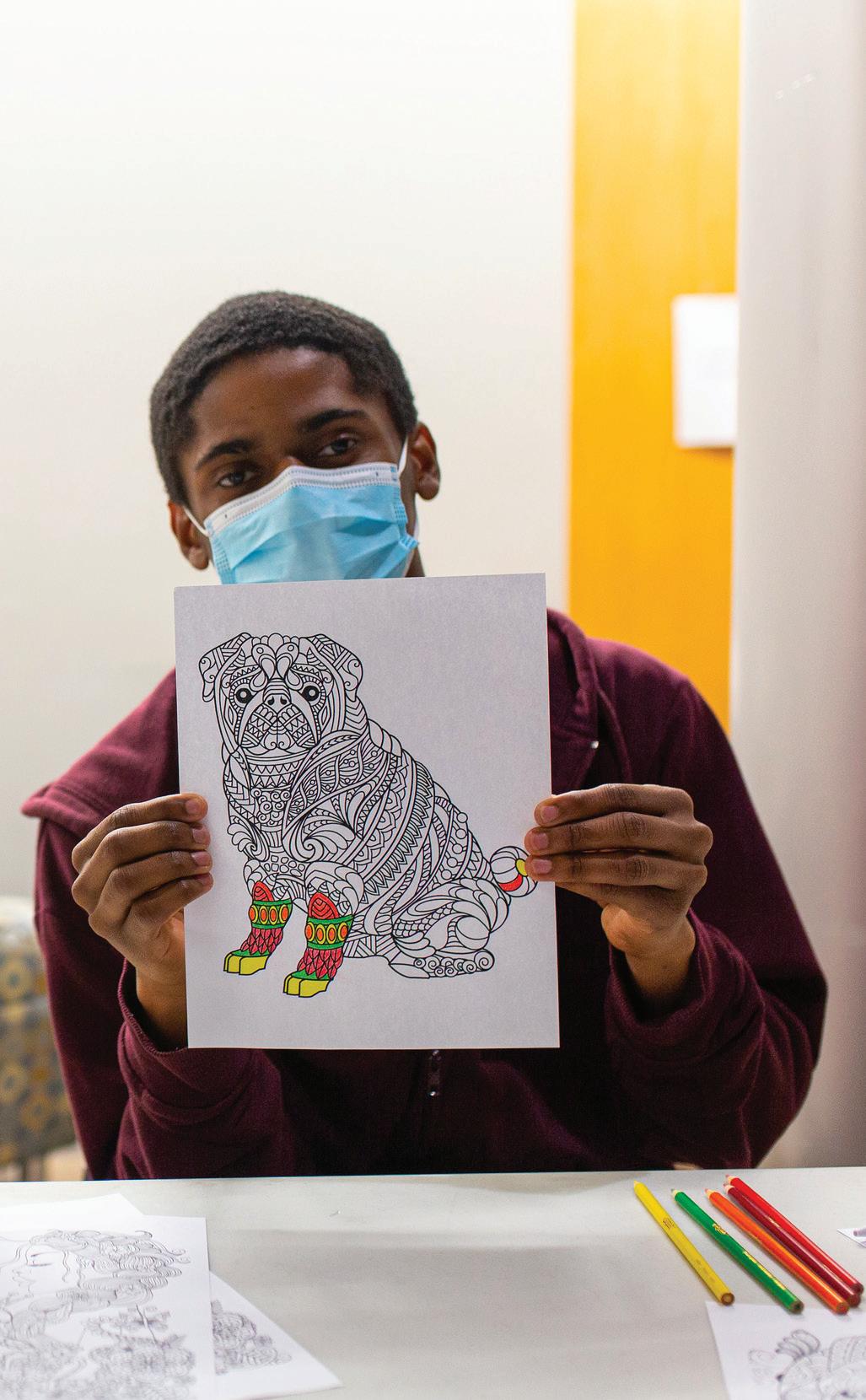
4 minute read
THE CENTER FOR CAREER AND PROFESSIONAL DEVELOPMENT
Location: Global Heritage Hall 1st Floor
The Center for Career & Professional Development provides resources and connections for students to achieve life-long success. We challenge students to ask themselves: Who am I? What do I want to do? How will I get there? To help students formulate answers to these questions, the CCPD offers the following services:
Individual Career Advising
• Self-Assessments
• Résumé and Cover Letter Assistance
• Guidance in the Internship Search
• Online Alumni Mentoring Database
• Externships
• Graduate School Preparation
• Internship & Career Planning Seminars
• Industry Focused Career Fairs & Networking Events
• Career & Professional Development Programming & Services
• Free Professional photos, Business Cards and Résumé Paper, Dress and Beauty Consultations
• Mock Interviews

• Job Search Skills
• Job Offer Negotiation
It is our hope that with the skills gained by using the Center for Career & Professional Development, all students who have completed a Roger Williams University undergraduate or graduate degree will possess the confidence, knowledge and skills to successfully navigate fulfilling careers.



Supporting Your Student’s Career Development
Choosing a career path is a process students need to go through – and they go through the stages of this process at different rates of speed. Check out the next couple pages for 9 ways that family members can support their student through this process!

Encourage your Student to Visit CCPD!
Due to the competitive nature of the working world today, it is important that students begin thinking about their career development as soon as they arrive to campus. Ask your student, “Have you visited the CCPD?” If you hear, “You only go there when you are a senior and have a career in mind,” then it is time to remind your student that the CCPD is not just for upperclassmen. Meeting with a career advisor can occur at any point in their college career and should take place frequently. The sooner a student becomes familiar with the staff, resources, and programs, the better prepared they will be to make wise career decisions.
Advise your Student to Write a Resume Early!
Writing a resume can be a reality check for some students and can help identify areas that require improvement. Suggest your student get industry specific resume building resources from the Center for Career & Professional Development for the most up-to-date ways to highlight their skills and impress employers. You may review resume drafts for grammar, spelling and content, but it is highly recommended that the final product be reviewed by a career advisor.
Challenge your Student to Become more “occupatiaonlly literate”
Ask your student the question: “How do you plan to use your degree after graduation?” If your student seems unsure, you may consider talking about personal qualities you see as talents and strengths. You may also recommend:
- Taking a self-assessment
- Speaking with faculty
- Researching a variety of interesting career fields and employers using the source O*Net Online -A career decision should be a process and not a one-time, last-minute event.
Allow
Myth: A student must major in something “practical” or marketable.
Truth: Students should leverage their skills and interests.
Myth: Picking your major means picking the career you will have forever.
Emphasize the Importance of Internships!
While the CCPD will support your student in their job search, we do not “place” your student in a job at graduation. As such, having relevant experience in this competitive job market is crucial. Your student can sample career options by completing internships and experimenting with summer employment opportunities or volunteer work. Why intern?:
- Employers are seeking communication, problem-solving, administrative skills, which can be developed through internships.
- Employers look for experience on a student’s resume and often hire from within their own internship programs.
- Having a high GPA is not enough.
- A strong recommendation from an internship supervisor can often tip the scale of an important interview in their favor.
- Internships can confirm the field is the best fit for the student.
Encourage Extracurricular Involvement!
Part of
Experiencing College Life Is To Be Involved And Active Outside
the classroom. Interpersonal, leadership and time management skills – qualities valued by future employers – are often developed in extracurricular activities.
Recommed your Student stay up-to-date with Current Events!
Employers will expect students to know what is happening around them, sometimes asking students about current events and industry trends during the interview process. Consider buying your student a subscription to the New York Times or the Wall Street Journal. When your student is on break, discuss major world and business issues.
your Student to make the Decision!
Truth: “Major” does not necessarily mean “career.” It is not unusual for a student to change majors after gaining more information about specific areas of study and career fields of interest. Many students end up doing something very different than originally planned. In fact, studies show that students on average will change jobs three times in five years after graduation.
Career development can be stressful. It’s okay to make suggestions about majors and career fields, but let your student be the ultimate judge of what’s best. This may be the first really big decision that your student has had to make. Be patient, sympathetic and understanding, even if you do not agree with your student’s decisions.
Stress the Value of Networking!
Introduce your student to people who have the careers/jobs that are of interest to them. Suggest that your student contact people in your personal and professional networks for information on their career paths, what they could be doing now to prepare for entering the workforce, and potential summer jobs or internship opportunities. Encourage your student to “shadow” someone in the workplace to increase awareness of interesting career fields.








